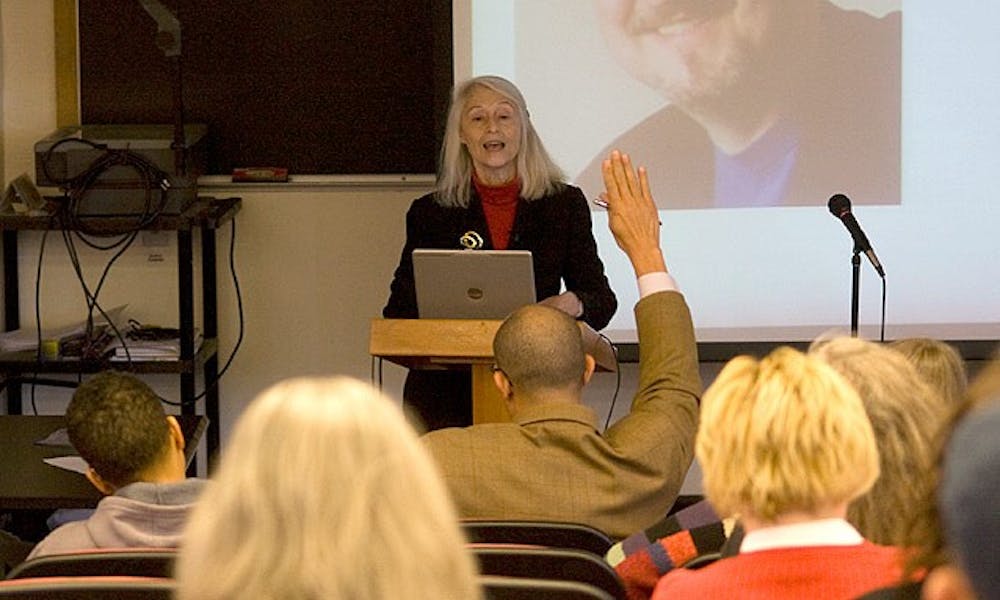Bye-bye Blackboard.
Sakai Collaboration and Learning Environment will replace Blackboard Academic Suite Version 8 as the University’s new eLearning software, announced the eLearning Roadmap Committee at the Arts and Sciences Council meeting Thursday. The University, which implemented the most recent version of the Blackboard software in May 2009, expects the transition to be completed by July 2012.
In their presentation to the Council, the committee cited the many benefits of Sakai, which include cost efficiency, simpler file uploading and potential mobile device and iPad capabilities.
“Sakai’s open-source application framework will be more flexible in meeting Duke’s evolving needs,” said Ed Gomes, senior associate dean of Trinity College Technology Services and chair of the eLearning Roadmap Committee. “It can be more cost effectively extended to support Duke’s global programs.”
The eLearning Roadmap Committee is composed of various members of technical offices throughout the University and has been researching alternative eLearning software options for the last year. The Committee noted that the transition from Blackboard to Sakai will present some challenges such as financial risk, legal concerns associated with external hosting of the system and the need for faculty training.
“Some faculty may find that there are limitations to [Sakai],” said Tracy Futhey, vice president for Information Technology and chief information officer. “But we can actually augment the software in ways we can’t with Blackboard.”
The committee launched a pilot program of Sakai at the start of the Spring semester. The pilot program is for 11 courses with an approximate total of 400 students, varying between seminar-sized courses and large lectures, Gomes said. He added that the Committee plans to ask the Information Technology Advisory Council and various student and faculty governing bodies—such as Duke Student Government and the Arts and Sciences Council—for feedback and support throughout the transition process.
Faculty members—particularly those with multi-section classes—have already expressed positive feedback, said Amy Campbell, assistant director of the Center for Instructional Technology.
“A lot said they had an ‘a-ha’ moment, but after that it was great,” she said.
The pilot program will be externally hosted by the University of North Carolina, which has been using the software for three years, said Samantha Earp, director of academic services for the Office of Information Technology. Earp added that many other universities nationwide have made a similar transition.
In other business:
A South Asian Studies certificate program was proposed to the council by Keith Whitfield, professor of psychology and neuroscience and chair of the Curriculum Committee.
“[South Asia has] been important, and it’s going to remain important, and Duke is just a little behind,” Whitfield said “Students want to be able to say, ‘Look, I have this major, but look at my sub-field. I’m perfect for a job in India or in Sri Lanka.’”
The goal of the program is to provide students with an understanding of the history, culture and importance of the region, ideas not necessarily covered by the International Comparative Studies and Asian and Middle Eastern Studies departments, he added.
The council is postponing a vote on the program until faculty have an opportunity to discuss funding and study abroad requirements with the proposal’s authors.
The formerly ad-hoc Faculty Assessment Committee was unanimously approved as a standing committee by the council. The committee will advise Lee Baker, Trinity dean of academic affairs and associate vice provost for undergraduate education, by reviewing assessment plans and providing feedback and suggestions for improvement to the student assessment process.
At last month’s meeting, the council had discussed a desire for a more prominent role of faculty in the student assessment process and this was achieved with the approval of the new committee, said council Chair Ruth Day.
“Rather than it being an administrative job, it will be a faculty job,” she said.
Correction: A previous version of this article incorrectly stated that the Blackboard Academic Suite has been used at Duke for three years. The article has been updated to reflect the fact that Blackboard has been in use longer and that the most recent update occurred in 2009. The Chronicle regrets the error.
Get The Chronicle straight to your inbox
Sign up for our weekly newsletter. Cancel at any time.

